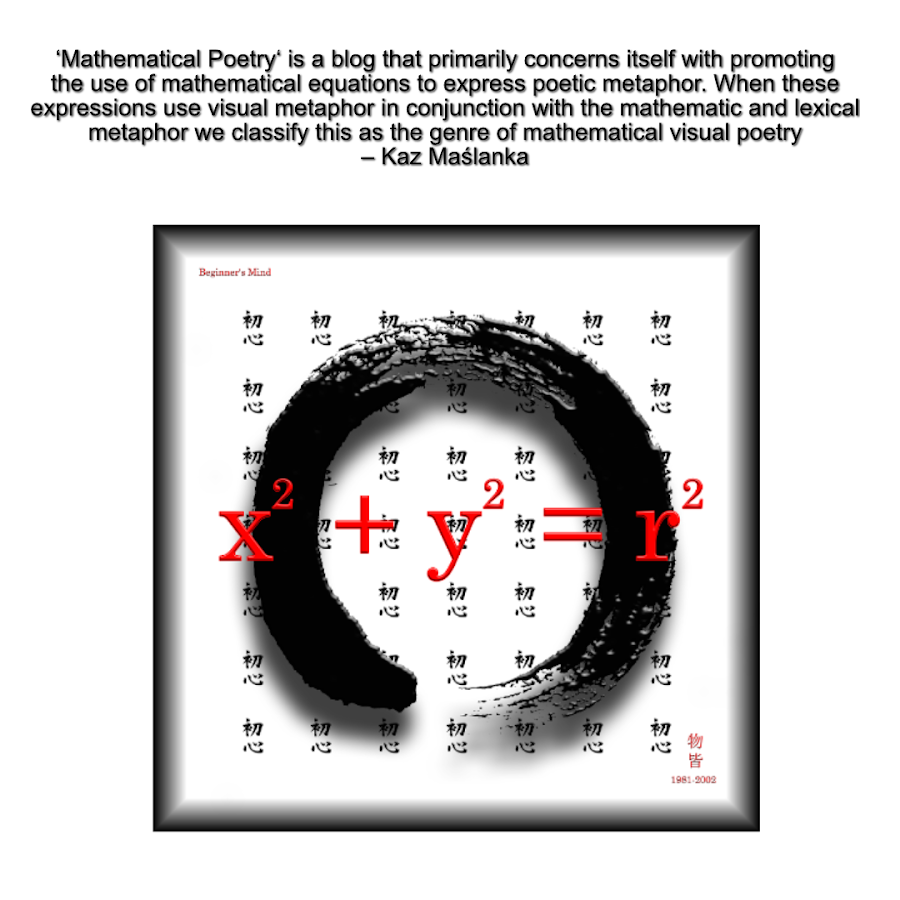In a fascinating book entitled "The Mathematical Experience," [Davis and Hersh], I found:
- Mathematical axioms have the reputation of being self-evident, but it might
seem that the axioms of infinity and that of God have the same character as far
as self-evidence is concerned. Thus, ...'Axiom of Infinity: An infinite set
exists.' Axiom of God: (Maimonides: Mishneh Torah, beginning):
The basic principle of all basic principles and the pillar of all the sciences is to realize that there is a First Being who brought every existing thing into being.
Which is mathematics and which is theology? Does this lead us to the idea that an axiom is merely a dialectical position on which to base further argumentation, the opening move of a game without which the game cannot get started?"


Does this mean that religion is an axiomatic structure -- like a group, perhaps? A subject within which acceptance of particular axioms leads to collection of consequences?
ReplyDeleteYep - The 10 commandments are axioms.
ReplyDeleteKaz, This is very thought provoking. Thanks for posting it. This is how I react to it: Mathematical axioms are not considered self-evident. They are considered basic principles with which you can construct a body of knowledge that is useful for understanding nature and, to some of us, also beautiful and worth playing with. Axioms can change, like for example the 5th axiom of Euclid, to yield a different body of knowledge (non Euclidean geometry). Or some people do not accept certain axioms,like for example "the axiom of choice," in which case they only accept part of the built body of knowledge. All you can say is that all human thought needs to start somewhere and this somewhere is in mathematixs the axioms, and in religion, the existence of God. This does not mean that mathematcs is religion or religion is mathematics.
ReplyDeleteWell, religion is math. And I'm writing about it as we speak ha ha.
ReplyDeleteHey Kaz!!! How are you? I've been a terrible blog friend and haven't visited you or left a comment in a long time. But here I am making amends. so wonderful to catch up on your brain, heart and ideas!!!!
Cheers,
Candy
speaking of poetry...I hae a poetry raffle on my blog...tell your friends!
Sarah,
ReplyDeleteThanks for dropping by - yes human thought needs to start somewhere - I once heard a mathematician say that you must have a philosophy before you can have mathematics - and I think some will agree that you have to have a philosophy to have a religion as well.
Thanks!
Hi Candy,
ReplyDeleteLong time no see - great to see you are still in the blogsphere. :)
Hello Kaz :)
ReplyDeleteI used to be into maths a bit, these days I study cultural knowledge which is more to my interest - still, links between Arts and Sciences have absorbed me for a long time. To my mind, the correspondence of maths and religion you elaborated on in this fascinating post, might be rooted in maths' inability of getting entirely rid of the natural language. Yes, there's a sheerly mathematical one, still its components must be first defined in its natural counterpart. And the natural language, any one, is relying prevalently on metaphors. I think the philosophy behind science might include a conviction that a language can be divided into its "biased" and "unbiased" parts. Therefore, many scientists may fail to acknowledge how their bias against "biased" might influence their work. On the other hand, a great deal of people excelling in Arts might deny everything that requires not acting on the spur of their emotions. I might be utopist, but to me the correspondence of these two spheres needs to involve a dialogue between them -- which your blog plays a distinguished role in :)
Thank you very much for you comment Weronika!
ReplyDelete